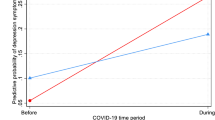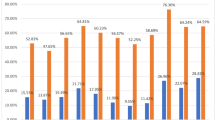Abstract
OBJECTIVES: To determine among rural-dwelling on-reserve Saskatchewan First Nations people whether racial discrimination is associated with depression, and in turn, if this relationship is moderated by gender.
METHODS: As a component of a community-based participatory research project, a cross-sectional, interviewer-administered survey of 874 adults living on 2 Cree First Nation reserves in rural north-central Saskatchewan was conducted during May–August in 2012 and 2013. Self-reported, health-provider diagnosis of depression was the dependent variable and experiences of interpersonal racial discrimination was the primary exposure. Chi-square and multiple logistic regression were the main analytic techniques. Generalized estimating equations were applied to account for clustering within households.
RESULTS: Overall, 64% of participants reported being treated unfairly in 1 or more situations because of their ethnicity; 38% indicated discrimination occurring in 3 or more situations. Nineteen percent reported a diagnosis of depression. Adjusted analyses indicated that compared to those with no experience of racial discrimination, those reporting 1–2 and 3 or more situations were 1.77 times (95% CI: 1.06–2.95) and 1.91 times (95% CI: 1.19–3.04) more likely to have diagnosed depression respectively. The relationship between racial discrimination and depression was not modified by gender, although women were 1.85 times (95% CI: 1.24–2.76) more likely to report depression than men.
CONCLUSION: Interpersonal racial discrimination was associated with depression among First Nations women and men in rural Saskatchewan. Research directed at identifying the most efficacious interventions, programs and policies to combat racism is required to advance the goal of health equity.
Résumé
OBJECTIFS: Déterminer, chez les membres des Premières Nations de la Saskatchewan vivant dans des réserves en zone rurale, si la discrimination raciale est associée à la dépression et si, en retour, cette relation est modulée par le sexe.
MÉTHODE: Dans le cadre d’un projet de recherche participative communautaire, nous avons mené une enquête transversale administrée par un intervieweur auprès de 874 adultes vivant dans deux réserves de la Première Nation crie dans le centre-nord rural de la Saskatchewan entre mai et août en 2012 et en 2013. La variable dépendante était un diagnostic de dépression autodéclaré posé par un dispensateur de soins de santé, et l’exposition directe était l’expérience de la discrimination raciale interpersonnelle. Nos principales techniques étaient l’analyse du khi-carré et l’analyse de régression logistique multiple. Nous avons appliqué des équations d’estimation généralisées pour tenir compte des regroupements au sein des ménages.
RÉSULTATS: Dans l’ensemble, 64 % des participants ont déclaré avoir été traités injustement dans une situation ou plus en raison de leur ethnicité; 38 % ont fait état de discrimination dans trois situations ou plus. Dix-neuf p. cent ont dit avoir un diagnostic de dépression. Les analyses ajustées ont indiqué que comparativement aux répondants n’ayant aucune expérience de discrimination raciale, ceux qui ont déclaré une ou deux situations et trois situations ou plus étaient 1,77 fois (IC de 95 %: 1,06–2,95) et 1,91 fois (IC de 95 %: 1,19–3,04) plus susceptibles d’avoir un diagnostic de dépression, respectivement. La relation entre la discrimination raciale et la dépression n’était pas modulée par le sexe, mais les femmes étaient 1,85 fois (IC de 95 %: 1,24–2,76) plus susceptibles de déclarer un diagnostic de dépression que les hommes.
CONCLUSION: La discrimination raciale interpersonnelle était associée à la dépression chez les femmes et les hommes des Premières nations vivant en zone rurale en Saskatchewan. Pour atteindre l’objectif de l’équité en santé, il faut faire de la recherche pour déterminer quels sont les interventions, les programmes et les politiques les plus efficaces pour combattre le racisme.
Similar content being viewed by others
References
Krieger N. Discrimination and health inequities. In: Berkman L, Kawachi I, Glymour M (Eds.), Social Epidemiology, 2nd ed. New York, NY: Oxford University Press, 2014; 63–125.
Williams DR, Mohammed SA. Discrimination and racial disparities in health: Evidence and needed research. J Behav Med 2009;32(1):20–47. PMID: 19030981. doi: 10.1007/sl0865-008-9185-0.
Paradies Y, Ben J, Denson N, Elias A, Priest N, Pieterse A, et al. Racism as a determinant of health: A systematic review and meta-analysis. PLoS ONE 2015;10(9):e0138511. PMID: 26398658. doi: 10.1371/journal.pone.0138511.
Johansson P, Muller CJ, Samos MW, Goldberg J. The influence of perceived discrimination on health-related quality of life in an East Coast American Indian tribe. J Health Care Poor Underserved 2013;24(4):1531–41. PMID: 24185150. doi: 10.1353/hpu.2013.0183.
Whitbeck LB, McMorris BJ, Hoyt DR, Stubben JD, LaFromboise T. Perceived discrimination, traditional practices, and depressive symptoms among American Indians in the upper Midwest. J Health Soc Behav 2002;43: 400–418. PMID: 12664673. doi: 10.2307/3090234.
Harris R, Tobias M, Jeffreys M, Waldegrave K, Karlsen S, Nazroo J. Racism and health: The relationship between experience of racial discrimination and health in New Zealand. Soc Sci Med 2006;63(6): 1428–41. PMID: 16740349. doi: 10.1016/j.socscimed.2006.04.009.
Paradies YC, Cunningham J. The DRUID study: Racism and self-assessed health status in an indigenous population. BMC Public Health 2012;12(1):131. PMID: 22333047. doi: 10.1186/1471-2458-12-131.
Allan B, Smylie J. First Peoples, Second Class Treatment: The Role of Racism in the Health and Well-being of Indigenous Peoples in Canada. Toronto, ON: The Wellesley Institute, 2015.
Currie CL, Wild TC, Schopflocher DP, Laing L, Veugelers P, Parlee B. Racial discrimination, post traumatic stress, and gambling problems among urban Aboriginal adults in Canada. J Gambl Stud 2013;29(3):393–415. PMID: 22730152. doi: 10.1007/sl0899-012-9323-z.
Bombay A, Matheson K, Anisman H. Decomposing identity: Differential relationships between several aspects of ethnic identity and the negative effects of perceived discrimination among First Nations adults in Canada. Cultur Divers Ethnic Minor Psychol 2010;16(4):507–16. PMID: 21058814. doi: 10.1037/a0021373.
Bombay A, Matheson K, Anisman H. Appraisals of discriminatory events among adult offspring of Indian residential school survivors: The influences of identity centrality and past perceptions of discrimination. Cultur Divers Ethnic Minor Psychol 2014;20(1):75–86. PMID: 23834257. doi: 10.1037/a0033352.
Kubik W, Bourassa C, Hampton M. Stolen sisters, second class citizens, poor health: The legacy of colonization in Canada. Humanity Soc 2009;33(l-2): 18–34. doi: 10.1177/016059760903300103.
MacMillan HL, Jamieson E, Walsh CA, Wong MY, Faries EJ, McCue H, et al. First Nations women’s mental health: Results from an Ontario survey. Arch Womens Ment Health 2008;11(2):109–15. PMID: 18493709. doi: 10.1007/s00737-008-0004-y.
Pahwa P, Abonyi S, Karunanayake C, Rennie DC, Janzen B, Kirychuk S, et al. A community-based participatory research methodology to address, redress, and reassess disparities in respiratory health among First Nations. BMC Res Notes 2015;8(1):199. PMID: 25981585. doi: 10.1186/sl3104-015-1137-5.
Sanchez-Villegas A, Schlatter J, Ortuno F, Lahortiga F, Pla J, Benito S, et al. Validity of a self-reported diagnosis of depression among participants in a cohort study using the Structured Clinical Interview for DSM-IV (SCID-I). BMC Psychiatry 2008;8:43. PMID: 18558014. doi: 10.1186/1471-244X-8-43.
Stuart AL, Pasco JA, Jacka FN, Brennan SL, Berk M, Williams LJ. Comparison of self-report and structured clinical interview in the identification of depression. Compr Psychiatry 2014;55(4):866–869. PMID: 24467941. doi: 10.1016/j.comppsych.2013.12.019.
Krieger N, Smith K, Naishadham D, Hartman C, Barbeau EM. Experiences of discrimination: Validity and reliability of a self-report measure for population health research on racism and health. Soc Sci Med 2005;61:1576–96. PMID: 16005789. doi: 10.1016/j.socscimed.2005.03.006.
Bastos JL, Celeste RK, Faerstein E, Barros AJ. Racial discrimination and health: A systematic review of scales with a focus on their psychometric properties. Soc Sci Med 2010;70(7):1091–99. PMID: 20122772. doi: 10.1016/j.socscimed. 2009.12.020.
Gunn JM, Ayton DR, Densley K, Pallant JF, Chondros P, Herrman HE, et al. The association between chronic illness, multimorbidity and depressive symptoms in an Australian primary care cohort. Soc Psychiatry Psychiatr Epidemiol 2012;47(2):175–84. PMID: 21184214. doi: 10.1007/s00127-010-0330-z.
Spence ND, Wells S, Graham K, George J. Racial discrimination, cultural resilience, and stress. Can J Psychiatry 2016;61(5):298–307. PMID: 27254805. doi: 10.1177/0706743716638653.
Whitbeck LB, Walls ML, Johnson KD, Morrisseau AD, McDougall CM. Depressed affect and historical loss among North American indigenous adolescents. Am Indian Alsk Native Ment Health Res 2009;16(3):16–41. PMID: 20052631. doi: 10.5820/aian.l603.2009.16.
Ryff CD, Keyes CL, Hughes DL. Status inequalities, perceived discrimination, and eudaimonic well-being: Do the challenges of minority life hone purpose and growth? J Health Soc Behav 2003;44:275–91. doi: 10.2307/1519779.
Flores E, Tschann JM, Dimas JM, Bachen EA, Pasch LA, de Groat CL. Perceived discrimination, perceived stress, and mental and physical health among Mexican-origin adults. Hispanic J Behav Sci 2008;30(4):401–24. doi: 10.1177/0739986308323056.
Caron J, Liu A. A descriptive study of the prevalence of psychological distress and mental disorders in the Canadian population: Comparison between low-income and non-low-income populations. Chronic Dis Can 2010;30(3): 84–94. PMID: 20609292.
Wang J, Williams J, Lavorato D, Schmitz N, Dewa C, Patten SB. The incidence of major depression in Canada: The National Population Health Survey. J Affect Disord 2010;123(1):158–63. PMID: 19720400. doi: 10.1016/j.jad.2009.07.016.
First Nations Information Governance Centre. First Nations Regional Health Survey (RHS) 2008/10: National Report on Adults, Youth and Children Living in First Nations Communities. Ottawa, ON: First Nations Information Governance Centre, 2012.
Kirmayer LJ, Boothroyd LJ, Tanner A, Adelson N, Robinson E. Psychological distress among the Cree of James Bay. Transcuit Psychiatry 2000;37(1):35–56. doi: 10.1177/136346150003700102.
Piccinelli M, Wilkinson G. Gender differences in depression. Critical review. B J Psychiatry 2000;177(6):486–492. doi: 10.1192/bjp.l77.6.486.
Frohlich KL, Ross N, Richmond C. Health disparities in Canada today: Some evidence and a theoretical framework. Health Policy 2006;79:132–43. PMID: 16519957. doi: 10.1016/j.healthpol.2005.12.010.
Tjepkema M. The health of the off-reserve Aboriginal population. Health Rep 2002;13(Suppl):73–88.
Garner R, Carriere G, Sanmartin C. Longitudinal Health and Administrative Data Research Team. The Health of First Nations Living Off-Reserve, Inuit, & Metis Adults in Canada: The Impact of Socio-economic Status on Inequalities of Health. Report No. 82-622-X. Ottawa, ON: Statistics Canada, Health Analysis Division, 2010.
Larson A, Gillies M, Howard PJ, Coffin J. It’s enough to make you sick: The impact of racism on the health of Aboriginal Australians. Aust NZ J Public Health 2007;31(4):322–29. doi: 10.1111/j.1753-6405.2007.00079.X.
Brondolo E, Brady Ver Halen N, Pencille M, Beatty D, Contrada RJ. Coping with racism: A selective review of the literature and a theoretical and methodological critique. J Behavioral Med 2009;32(1):64–88. PMID: 19127420. doi: 10.1007/S10865-008-9193-0.
Currie C, Wild TC, Schopflocher D, Laing L. Racial discrimination, post-traumatic stress and prescription drug problems among Aboriginal Canadians. Can J Public Health 2015;106(6):382–7. PMID: 26680429. doi: 10.17269/cjph.l06.4979.
Ferdinand AS, Paradies Y, Kelaher M. Mental health impacts of racial discrimination in Australian culturally and linguistically diverse communities: A cross-sectional survey. BMC Public Health 2015;15(1):401. PMID: 25911973. doi: 10.1186/S12889-015-1661-1.
Reading C. Policies, Programs and Strategies to Address Aboriginal Racism: A Canadian Perspective. Prince George, BC: National Collaborating Centre for Aboriginal Health, 2014.
Bellamy S, Hardy C. Understanding Depression in Aboriginal Communities and Families. Prince George, BC: National Collaborating Centre for Aboriginal Health, 2015.
Gee G, Walsemann K. Does health predict the reporting of racial discrimination or do reports of discrimination predict health? Findings from the National Longitudinal Study of Youth. Soc Sci Med 2009;68(9): 1676–84. PMID: 19289253. doi: 10.1016/j.socscimed.2009.02.002.
Rothman KJ, Gallacher JE, Hatch EE. Why representativeness should be avoided. Int J Epidemiol 2013;42(4):1012–14. PMID: 24062287. doi: 10.1093/ije/dys223.
Author information
Authors and Affiliations
Consortia
Corresponding author
Additional information
Acknowledgements: This study was funded by a grant from the Canadian Institutes of Health Research “Assess, Redress, Re-assess: Addressing Disparities in Respiratory Health among First Nations People”, CIHR MOP-246983-ABH-CCAA-11829. We are grateful for the contributions of all the participants who donated their time to complete and return the survey. Co-Principal Investigators of the First Nations Lung Health Project: Punam Pahwa, Sylvia Abonyi, Jo-Ann Episkenew and James A. Dosman.
Conflict of Interest: None to declare.
Rights and permissions
About this article
Cite this article
Janzen, B., Karunanayake, C., Rennie, D. et al. Racial discrimination and depression among on-reserve First Nations people in rural Saskatchewan. Can J Public Health 108, e482–e487 (2017). https://doi.org/10.17269/CJPH.108.6151
Received:
Accepted:
Published:
Issue Date:
DOI: https://doi.org/10.17269/CJPH.108.6151




